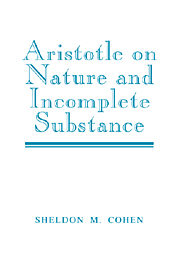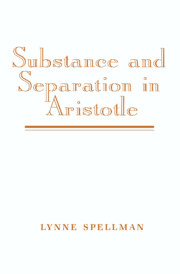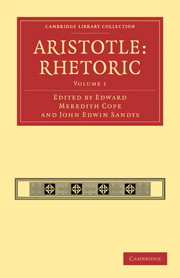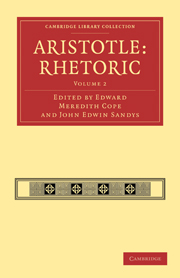Aristotle on Nature and Incomplete Substance
This book examines Aristotle's metaphysics and his account of nature, stressing the ways in which his desire to explain observed natural processes shaped his philosophical thought. It departs radically from a tradition of interpretation, in which Aristotle is understood to have approached problems with a set of abstract principles in hand, principles derived from critical reflection on the views of his predecessors. A central example of the book interprets Aristotle's essentialism as deriving from an examination of the kinds of unity that various sorts of things have: elemental motion, alteration, transformation and the growth of organisms. An important conclusion of this argument is that an essence may, under certain circumstances, lack some of its essential attributes. This is a major re-evaluation of Aristotle's metaphysics that will interest philosophers, classicists and historians of science.
- On Aristotle - all books on Aristotle sell well
- Original interpretation
- Of interest to philosophers and classicists
Reviews & endorsements
"This book includes interesting discussions of substance, nature, essence, living things, artifacts, parts and wholes, and prime matter, to name just a few topics. Anyone interested in Aristotle's metaphysics and natural philosophy should read it." Choice
"Sheldon Cohen has written a remarkably concise and interesting book on a rather neglected topic within Aristotelian scholarship; namely, incomplete substances and their role in Aristotle's physics and metaphysics." John J. Cleary, Ancient Philosophy
Product details
January 2003Paperback
9780521533133
204 pages
229 × 152 × 12 mm
0.31kg
Available
Table of Contents
- 1. Nature and things
- 2. Elemental motion and alteration
- 3. Elemental transformation and the persistence of matter
- 4. Unity
- 5. Living things.






